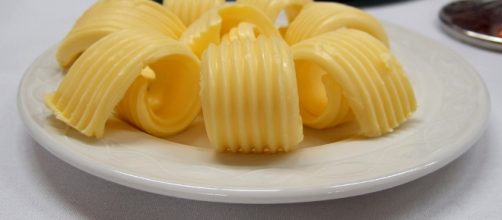A shortage in milk production and an increase in the demand for butter has put Europe in a butter crisis. China's butter consumption is booming and causing a much larger demand. Japan is also a booming market. The average European eats 8.4 pounds of butter, compared to 5.6 pounds on average in the U.S.
The liberalization of the dairy market by the EU in 2015, after an oversupply in the market, caused many dairy farmers to struggle or even go out of business. Milk production in Australia was also lower than expected due to bad weather.
Recent studies question the link of butter to heart disease and there has been a shift in the global population to eat more natural foods, such as butter and less processed items.
When McDonald's announced in 2015 that it was switching to butter, other companies soon followed.
Another reason for the increase in butter consumption is the high popularity of baking shows, such as the Great British Bake off and similar shows in Europe, which have led to a significant increase in butter and cream sales.
Reserves have fallen 99%
In the European Union, butter reserves had fallen to just 1,396 tons by the end of May, according to the EU. This is a 99 percent fall from the 92,548 tons held in May 2016. The French are most concerned, calling it a major crisis which will lead to significant increase in the cost of croissants and other pastries. Butter makes up about a quarter of the ingredients in croissants and other pastries.
It is estimated that bakers will have to spend 68 million Euro more for their ingredients due to the high price of butter.
It is not easy for butter producers to keep pace with changing demand. They also need to produce cheese, a high priced and good selling product. As a result of the crisis, the price of butter has never been this high, more than double what it was last year.
Milk producers are also at a loss as they can no longer make a living from their dairy farms. They are selling their milk for a price that is lower than production cost. The price is so low because Europe has a milk powder surplus of 350 thousand tons.
Supermarkets and restaurants are asked to charge the increased cost to their customers in order to limit the damage to the suppliers.
Outlook for the end of the year
Peder Tuborgh, of U.K. dairy company Arla, warned last month that there might not be enough milk and cream available at Christmas. Other experts are more pessimistic and think they may Run out long before that time.


